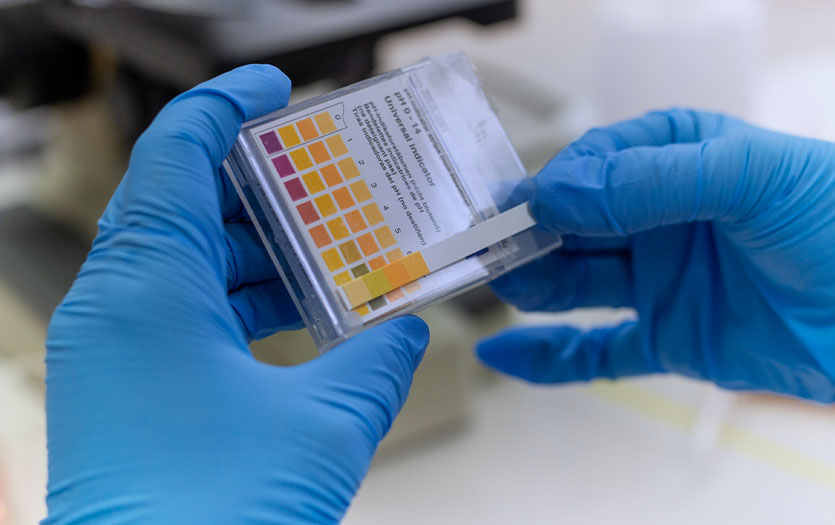.jpg)
This post was written by Paula Thomas, BSN, RN, diabetes care and education specialist, Parkview Diabetes Care Services.
Type 1 diabetes doesn't manifest overnight but gradually evolves through stages before notable symptoms appear. Early detection through a simple blood test is crucial as it identifies risk factors and contributes to a proactive approach to handling type 1 diabetes. In this post, we'll delve into how type 1 diabetes progresses, the vital role of screening and the available options for early intervention.
Overview
Type 1 diabetes is an autoimmune disease that contributes to elevated blood glucose levels (hyperglycemia) in the body. The pancreas is responsible for regulating blood sugar through a hormone called insulin. This hormone transports the glucose in your blood to your cells to be used for energy. However, for individuals living with type 1 diabetes, the immune system attacks the insulin-producing cells (beta cells) and causes an increase in blood glucose due to insufficient insulin production.
It's essential to be aware of the symptoms associated with type 1 diabetes, as they can often be mistaken for another illness. Common signs to be mindful of include:
- Frequent urination, especially at night
- Being very thirsty
- Increased hunger
- Unintentional weight loss
- Blurred vision
- Fatigue
Stage progression
The progression of type 1 diabetes is based on the number of autoantibodies present in a blood test due to ongoing attacks on the pancreas. Once the immune system initiates the autoantibodies, the disease progresses through the following stages:
Stage 1: Two or more autoantibodies are detectable, but the patient is not experiencing signs or symptoms. Glucose levels remain normal, and there is no need for insulin substitution.
Stage 2: Two or more autoantibodies are detectable while beta cells continue to be provoked. The patient may not present any signs or symptoms, but glucose levels may be outside the normal range. Insulin substitution is still not needed.
Stage 3: Two or more autoantibodies remain present, and blood sugar levels rise into an abnormal range. Patients will have begun experiencing symptoms of the disease. The pancreas cannot produce enough insulin to support the body's needs and will require supplementing to sustain normal blood glucose levels.
The importance of screening
Screening for type 1 diabetes has become a new tool for delaying the disease's symptoms and effects. Delaying the onset of the disease allows individuals to continue living without the additional challenges caused by diabetes symptoms. It provides them with the opportunity to gain a better understanding of the disease with a smoother transition to insulin treatment.
Additionally, it can reduce hospitalizations due to diabetic ketoacidosis (DKA), a complication that arises when individuals are unaware of their autoimmune disorder. This delay also allows for exploring other interventions and disease-modified therapies, helping individuals find the most optimal care team to support and guide them.
Screening for type 1 diabetes is widely available throughout the United States. It involves a simple blood test that a primary care provider can order. While anyone can undergo screening for type 1 diabetes-related autoantibodies, it is especially vital for those with a family history of the disease, certain viruses (like coxsackievirus) or other autoimmune diseases.
Early intervention
Screening can help detect which stage type 1 diabetes has progressed even when no symptoms exist, allowing for the timeliest intervention. Some interventions are limited to validation at stage 1 and stage 2.
While there is no prevention or cure for type 1 diabetes, a medication like TZIELD® (teplizumab-mzwv), administered as an intravenous infusion, can delay the onset of the disease while at stage 2. The FDA approved this treatment option in 2022 for individuals aged eight or older. Although medical teams are still in the initial phases of early intervention treatment for type 1 diabetes, TZIELD has the potential to disable the immune system response that triggers an attack on the pancreatic beta cells and slow down the onset of stage 3.
Support and education
Managing diabetes can be challenging, but you don't have to face it alone. The Diabetes Care Team at Parkview is here to provide comprehensive education, support and empowerment for those living with diabetes, ensuring you have a solid foundation to rely on without judgment or shame.
For questions regarding screening and early intervention treatment, call 877-774-8632 to speak with your primary care provider or schedule an appointment. You can also reach Parkview Diabetes Care Services at 260-373-4280 to speak with a diabetes educator, registered dietitian or lifestyle change specialist.



